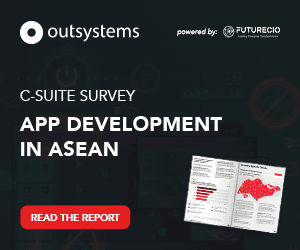Telcos have fairly large data estates. They collect a fair amount of data, and throw away the majority of it. What they keep is usually transactional information – when did I make a call, how long did I make a call, how much did I get charged for it, etc. - cell-site data, network performance traffic as well as other information spread across network and back office systems.
John Martin, director of strategy and technology, Office of the CTO, Asia Pacific, NetApp, refers to this as small data. He conceded that it’s a lot of data because telcos have a lot of customers. “But it’s not large by most standards today,” he said.
Changing view of data
On the other hand, the stuff that telcos throw away – browsing histories and metadata, social chats, multi-media instant messages, voice and video that traverses through telco’s pipes – it’s what observers refer to as unstructured data.
All this is changing, however, as regulators are requiring telcos to keep customers’ web browsing history and call records for longer periods of time. The convergence of fixed line and mobile operators is leaving them as the default internet service provider for the vast majority of their customers.
“A lot of this, what you may think of transactional conversations that people have, are declining dramatically, which is one of the challenges that telcos have. As such, the nature of way people communicate with each other has changed dramatically,” Martin explained.
Like banks, telcos have millions of customers – many with multiple plans and options. Martin noted that operators have the ability to gather enormous amounts of information, they just didn’t see a reason to do it – until recently.
He commented that telcos are only just beginning to realize how valuable this data is. As they do so, they must begin to ask: What am I going to do with it? How am I going to store it? Where to store it? What are the privacy implications of data and what might happen when someone breaks in and steals the data?
Mindset change
Martin explained that running a data-oriented business is very different from running an infrastructure business.
“Typically, most telcos have been infrastructure businesses. They lay telecommunications on one side of the country, run it over to the other side, and then charge for the communications that run across it – a fantastic business.
“The trouble with infrastructure businesses is that most people expect it to be a reliable utility service that gets cheaper over time. In the old days, telcos were heavily protected as they had a fixed line of business and were natural monopolies.
“They were created or government-funded and did not face much natural competition. The mobile phone market eroded that and that’s when we started seeing second or third players coming in to the market,” Martin elaborated.
Most mobile phones that you get nowadays just run over the data network, which allows the telco providers to get a lot more utilization out of that infrastructure that they’ve already got. Thus, telcos that roll out next-generation fiber optics or 5G and 4G data-oriented mobile services have a significant competitive advantage.
However, like most competitive advantages, this also tends to erode. This is because all that people expect out of infrastructure is for it to be a reliable utility service that gets cheaper over time. When there are a number of operators in the marketplace that offer similar services, (add on the fact that people are able to switch from one to the other quickly) it becomes a race to the bottom – the margins disappear very quickly.
This has caused the more traditional telcos to move towards a much richer set of services that they can sell, which has a lot more stickiness than just selling the ability to call someone up on a telephone.
The PwC report, Benefiting from Big Data: A new approach for the Telecom Industry, noted that the potential of big data poses a different challenge: how to combine much larger amounts of information to increase revenues and profits across the entire telecom value chain, from network operations to product development to marketing, sales, and customer service — and even to monetize the data itself.
How data should be viewed
Martin explained that most organizations, including telcos, use and view data like “a rear-vision mirror”. “It’s about how do I create a set of financial statements? How did I perform last quarter? its predictive value is quite small.”
He suggested that there is a much richer pool of data available to businesses today - including people’s movements, call and purchasing habits - which allows businesses to have a bigger idea of what their customers are going to do. The result is the ability to predict behavior.
The data-driven telco
Martin said that telcos must simplify their data management infrastructure. He noted that most telcos have developed a set of storage devices and data management services, which includes management systems and archive systems and data collection methods, etc.
He cautioned that current practices have resulted in the data being very fragmented and siloed, as data has never been thought of as a strategic asset. He suggested that telcos need to start getting an inventory of the data they have, how it’s stored, protected and how it’s secured. In an ideal world, this is the job of IT.
“What we’re beginning to see is that organizations are hiring more chief data officers. If the telco does not have a CDO today who understands not just the technical, but also legislative, social, impactful side of things, they are likely to fail.
“It requires a level of commitment right up to the board level, as it is something that you need to do to survive this transformation. You need to become a data thriver, for if you don’t, then you miss that inflection point and you become just a commodity provider of telephony and lose your profit,” he concluded.
How does this apply to the current state of competitiveness for carriers? Where number portability and price erosion mean customer churn is a guarantee?
The Deloitte paper, To be or not to be – the future of the telco business model, noted that: “The telcos require a high level of customer knowledge, which is enabled by big data and analytical capabilities, leading to a world-class AI-enabled customer service. They generate this through nearly perfect segmentation based on personalized insights, predictive analytics, and pattern recognition. The telcos steer their customers’ connectivity by switching between networks according to time, place, capacity, and use case.”
First published on Telecom Asia




